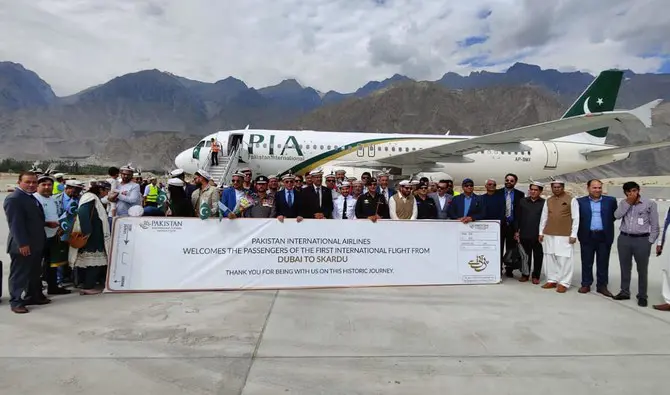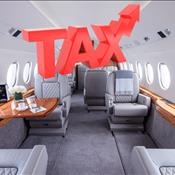
Pakistan’s aviation sector is entering a transformative new chapter, with multiple positive developments creating renewed momentum in the skies. From the long-awaited removal of international restrictions on Pakistan International Airlines (PIA) to foreign carriers expanding their operations in the country, the future looks promising for air travelers and the aviation industry alike.
This revival signals more than just an increase in flight options; it marks a significant stride towards global integration, tourism recovery, and economic growth for Pakistan.
PIA Cleared for Takeoff to the UK
One of the most anticipated updates in Pakistani aviation is the lifting of the United Kingdom’s ban on PIA Flights. The UK Civil Aviation Authority recently removed Pakistan from its Air Safety List, allowing local carriers like PIA to once again operate direct flights to British cities.
PIA has promptly responded to this green signal by preparing to resume direct services to the UK. According to the national airline, the first set of flights will connect Islamabad and Manchester, operating three times a week initially. The airline is currently finalizing schedules and awaits final approvals before taking to the skies again.
“This is a milestone for aviation safety and a testament to Pakistan’s commitment to complying with international standards,” stated a spokesperson from PIA. The airline credited the progress to effective collaboration between Pakistan Civil Aviation Authority (PCAA) and UK regulators, along with active support from government officials including Prime Minister Shehbaz Sharif and the British High Commissioner to Pakistan, Jane Marriott.
PIA had been grounded from operating in the EU and UK markets since 2020, following concerns raised over pilot license verifications. With the ban now lifted, the doors to one of Pakistan’s most important travel corridors are finally reopening — especially vital given the sizable Pakistani diaspora in the United Kingdom.
Air Arabia Abu Dhabi: Expanding Its Presence in Pakistan
Adding to the momentum is Air Arabia Abu Dhabi, which has significantly enhanced its connectivity with Pakistan. The UAE’s first low-cost carrier has increased frequencies to Faisalabad and Multan, and launched a new direct route to Sialkot, tapping into demand from both business travelers and expatriate communities.
The airline now operates five weekly flights to Multan — up from just two — and will offer daily flights starting September 2025. Similarly, flights to Faisalabad have doubled from two to four per week, providing greater flexibility and accessibility for travelers.
Air Arabia Abu Dhabi also unveiled plans to expand its fleet with two new aircraft before year-end, aimed at supporting more route expansions and improved operational efficiency.
This expansion not only strengthens bilateral ties between Pakistan and the UAE but also increases travel opportunities for Pakistanis in the Gulf region, many of whom travel for work, family visits, or medical needs.
Sialkot Joins the Network
The addition of Sialkot Airport to Air Arabia’s route network is a strategic move. As an important industrial and export hub, Sialkot now benefits from direct low-cost connectivity to the UAE, opening the door for both commercial and passenger growth.
This complements existing connections with cities like Lahore, Karachi, Islamabad, and Peshawar, solidifying Pakistan as a key regional aviation partner in South Asia for the Middle East.
Increase Umrah Flights Also Contributing to Growth
Umrah flights from Pakistan are experiencing robust growth as airlines expand capacity to meet rising pilgrim demand. PIA has resumed direct service from Faisalabad, Quetta, Multan, Islamabad, Lahore, Karachi, and Peshawar to Jeddah, operating multiple weekly routes for Umrah package holder from Pakistan. Carriers like AirBlue and Saudi low-cost airlines have also increased flight frequencies during Ramadan and throughout the year. Meanwhile, Saudi Arabia aims to boost overall Umrah flights capacity to 2.5 million seats by the end of 2025, enhancing access for Pakistani pilgrims. These developments reflect faster, more affordable, and more accessible Umrah flights from Pakistan than ever before.
Market Enhanced by Online Flight Booking Apps & Portals
Online flight booking in Pakistan has seen rapid growth, driven by the rise of tech-based platforms and mobile apps. Travel portals like Trips.pk, Sastaticket.pk, and Bookme.pk are revolutionizing how Pakistanis book domestic and international flights. These platforms offer real-time fare comparisons, secure payment options, and 24/7 customer support, making the booking process faster and more convenient. Mobile apps allow users to book flights on the go, receive instant confirmations, and access exclusive discounts. With increased internet penetration and smartphone usage, online flight booking in Pakistan is becoming the preferred choice for travelers seeking ease, transparency, and affordability.
Foreign Carriers Eye Pakistan’s Market
Pakistan’s aviation sector is not only witnessing local resurgence but is also attracting interest from other global airlines. Industry insiders report that multiple Middle Eastern, Turkish, and Central Asian airlines are exploring opportunities to increase weekly frequencies or launch new services to Pakistan, encouraged by the improving safety environment and passenger demand.
The lifting of bans and modernization of airport infrastructure, especially in Islamabad and Lahore, has made Pakistan a more attractive and feasible market for international airlines. The new Islamabad International Airport and upgrades at airports in Karachi, Multan, and Sialkot play a key role in these developments.
Government Support and Strategic Vision
Behind this aviation revival is a coordinated effort by the Pakistani government, civil aviation regulators, and the private sector. The government has made modernization of civil aviation a top priority, in line with broader efforts to boost trade, tourism, and investment.
Defense Minister Khawaja Asif emphasized in a recent press statement, “This is a turning point for Pakistan’s aviation industry. With the reopening of international routes and the confidence of global airlines, we are now set to connect Pakistan to the world in new and more meaningful ways.”
The Pakistan Civil Aviation Authority (PCAA) has worked diligently to regain the confidence of international aviation bodies, notably ICAO and EASA, by implementing safety upgrades, training protocols, and licensing reforms.
Implications for Economy and Passengers
The implications of these developments are far-reaching. Increased flight options and airline competition are expected to:
Lower ticket prices through competition
Boost tourism, especially religious and heritage-based tourism
Facilitate trade, especially from export hubs like Sialkot and Faisalabad
Create jobs in the aviation and travel sector
Enhance convenience for the 9 million+ strong Pakistani diaspora, particularly in the UK, Middle East, and North America
As the aviation sector continues to grow, analysts forecast a 20–30% increase in international flight frequencies from Pakistan by the end of 2026. Domestic air travel is also expected to rise, especially with renewed confidence in PIA and the rise of private players like AirSial and Fly Jinnah.
The next steps involve PIA seeking reinstatement to the European Union Aviation Safety Agency (EASA) list, which will allow it to operate direct flights to major EU destinations like Paris, Frankfurt, and Oslo — routes that have been dormant for years.
The restarting of key international routes, unbanning of PIA from major airspaces, and aggressive expansion by foreign carriers like Air Arabia Abu Dhabi marks a new era of aviation in Pakistan. It signals recovery, opportunity, and optimism.
With safer skies, better connectivity, and growing investor confidence, Pakistan’s aviation future is ready for takeoff — offering renewed wings to its citizens and a stronger link to the global community.
Aviation Developments in Pakistan (2025)
| Development | Details |
|---|---|
| PIA to UK | Flights resuming from Islamabad to Manchester (3 weekly) |
| Air Arabia Abu Dhabi | Increased flights to Multan (5→7) and Faisalabad (2→4) |
| New Route | Direct flights launched to Sialkot |
| Fleet Expansion | 2 new aircraft to be added by Air Arabia Abu Dhabi |
| UK Air Safety List | Pakistan removed; PIA cleared to fly to UK |
| Govt Support | Active coordination between PM Office, CAA, and UK Authorities |
| Future Plans | PIA targeting EU reinstatement; more foreign airlines planning entry |
;
More Travel News
-
 27-Aug-2019Want to see The Oldest City in The World
27-Aug-2019Want to see The Oldest City in The World -
 24-Mar-2022Permission of Itikaf after two year hiatus at the Two Holy Mosques
24-Mar-2022Permission of Itikaf after two year hiatus at the Two Holy Mosques -
23-Sep-2024Now Foreigners Get FREE Visas to Pakistan. New Policy Aims to Attract Tourism
-
.webp) 12-May-2025Saudi Arabia Work Visa 2025: A Comprehensive Guide for Foreign Nationals
12-May-2025Saudi Arabia Work Visa 2025: A Comprehensive Guide for Foreign Nationals -
 17-Oct-2025Honeymoon Bliss: Why Maldives Tops Every Couple’s Wish List
17-Oct-2025Honeymoon Bliss: Why Maldives Tops Every Couple’s Wish List -
 08-Jan-2021Tanaqqol Best App for Pilgrims Book an Electric Cars
08-Jan-2021Tanaqqol Best App for Pilgrims Book an Electric Cars -
 02-Jun-2025PIA Resumes Direct Dubai-Skardu Flights: A Gateway to Pakistan's Northern Treasures
02-Jun-2025PIA Resumes Direct Dubai-Skardu Flights: A Gateway to Pakistan's Northern Treasures -
 16-Jun-2022Business class air ticket Rs.50,000 Tax Approved
16-Jun-2022Business class air ticket Rs.50,000 Tax Approved -
 06-Jan-2026how to identify and avoid fake/fraud umrah travel agents
06-Jan-2026how to identify and avoid fake/fraud umrah travel agents -
 28-Oct-2025Latest Umrah Visa Updates & Travel Rules
28-Oct-2025Latest Umrah Visa Updates & Travel Rules -
 07-Jan-2020Top 5 Religious Tourist Places in Pakistan
07-Jan-2020Top 5 Religious Tourist Places in Pakistan -
 21-Jan-2022Murree Tragedy Affect On Tourism Industry In Pakistan
21-Jan-2022Murree Tragedy Affect On Tourism Industry In Pakistan
